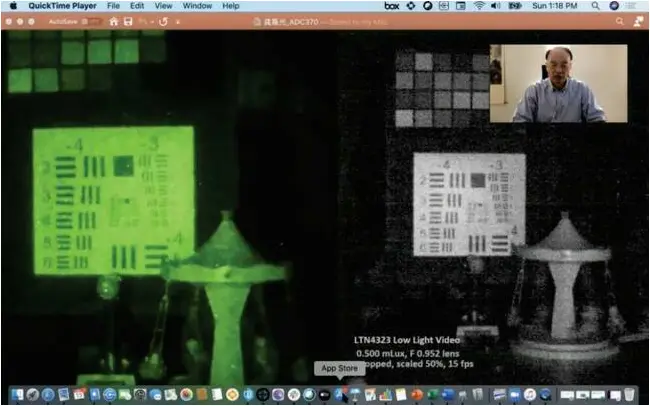Silicon Valley Engineer Admits Theft Of Us Missile Tech Secrets
A Silicon Valley engineer has pleaded guilty to stealing thousands of trade secrets worth hundreds of millions of dollars, including crucial military technology.
San Jose-based Chenguang Gong, a 59-year-old dual Chinese and American citizen, admitted downloading over 3,600 documents from two electronics manufacturers and storing them on personal storage drives. Some of the documents he downloaded included information on sensors used by aircraft to confuse infrared-seeking missiles. Others describe radiation-hardened cameras that the US placed in orbit to give an early warning of rocket launches and track hypersonic vehicles.
“Between approximately March 30, 2023, and April 25, 2023, on 16 different days, Gong transferred more than 3,600 files from his work laptop to three personal storage devices, including a Verbatim flash drive and two Western Digital external hard drives,” testified [PDF] FBI special agent Igor Neyman back in February.
“Gong transferred more than 1,800 files to the Verbatim flash drive after he had accepted a new job on or about April 5, 2023, at a technology company that directly competes with the Victim Company in the infrared sensor field. Gong then transferred some of these files from the three personal storage devices to his personal computer and to other personal storage devices.”
The FBI’s interviews and examination of his digital footprint showed he stole information from his employers as soon as he moved to the USA from China. Gong admitted to the theft of trade secrets.
He’s got talent
Gong came to the US in 1993 and studied electrical engineering at Clemson University and did some PhD work at Stanford University. He became a US citizen in 2011, a year in which he designed integrated circuits at a US information technology company in Santa Clara.
That gig ended in 2014, when he started a new job as a CMOS image sensor design manager for a military contractor in San Jose.
In the same year, Gong started applying for so-called “talent programs” in China. The People’s Republic first established these in the early 1990s as a way to bootstrap its own high tech industries by offering financial rewards to Chinese workers overseas in exchange for technology they are working on.
Beijing pays rewards that far outstrip tech worker salaries. Neyman said winners can earn a $150,000 signing bonus plus as much as an additional $750,000 to support further “research.”
Gong applied for such programs multiple times between 2014 and 2022, in each case pitching technology similar to that he worked on at his jobs in the USA. In 2020 he reached the semifinals of a talent competition (earning around $2,800) for a proposal to manufacturer low light or night vision sensors using technology from his then-employer, and even including pictures of some of its hardware in his PowerPoint presentation.
However, he stumbled when he moved employers on January 30, 2023. That shift took him to the labs of an application-specific integrated circuit (ASIC) designer, but he quickly took a leave of absence in February, ostensibly to look after parents in China who were having health issues.
However, he never actually left the country.
Finally someone checks
Gong returned to work in March, and almost immediately started downloading thousands of files, including CAD design schematics of circuits designed to track missile launches and other objects, and stored them on portable drives.
He handed in his notice on March 20 and “told the Victim Company he was leaving because he felt he was not doing a good job and the Victim Company should hire someone better,” Neyman said.
“The Victim Company estimates that the value of the Trade Secret Information is in the hundreds of millions of dollars. Additionally, if the Victim Company’s Trade Secret Information was obtained by a foreign government, it would compromise US national security.”
Gong went to work for a direct competitor to his previous employer in April, but the IT security team at his last gig conducted an audit of his activities and then called in the FBI. After a surveillance operation was set up and search warrants obtained, the agents found the filched files and a host of other incriminating evidence.
Authorities arrested and charged Gong in February. He pleaded guilty on Monday and faces a maximum of 10 years in prison. ®
A considerable amount of time and effort goes into maintaining this website, creating backend automation and creating new features and content for you to make actionable intelligence decisions. Everyone that supports the site helps enable new functionality.
If you like the site, please support us on “Patreon” or “Buy Me A Coffee” using the buttons below
To keep up to date follow us on the below channels.



![[QILIN] - Ransomware Victim: Essential Cabinetry Group 2 image](https://www.redpacketsecurity.com/wp-content/uploads/2024/09/image-300x300.png)
![Cobalt Strike Beacon Detected - 101[.]35[.]223[.]90:443 4 Cobalt-Strike](https://www.redpacketsecurity.com/wp-content/uploads/2021/11/Cobalt-Strike-300x201.jpg)
